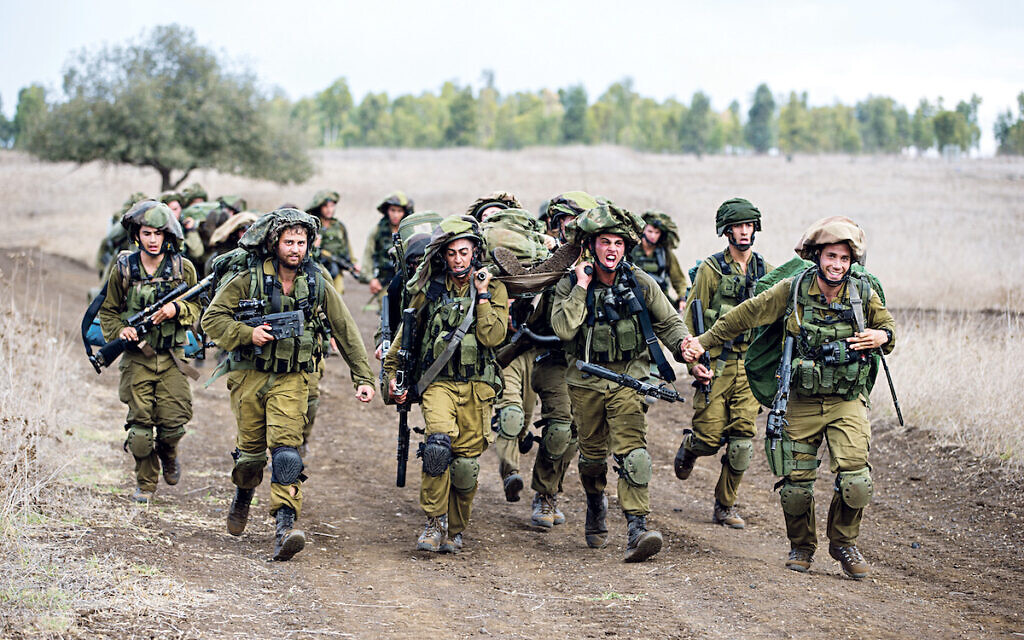Food fight! Meet the woman who feeds the Israeli army
There’s no marching on empty stomachs for Israeli soldiers finds Louisa Walters, as she speaks to the IDF’s chief nutritionist ahead of stepping down from the role.
Lieutenant Colonel Yafit Adri has led a glittering 25 years of military service with the Israeli Defense Forces (IDF), including heading up
the army’s nutrition and culinary development.
How did you end up in charge of food for the IDF?
I was deputy commander of a construction unit when a friend told me he had been offered a position as head of the IDF nutrition department, but that he didn’t want it. I felt strongly that this was my calling!
Get The Jewish News Daily Edition by email and never miss our top stories Free Sign Up
I applied and was initially rejected on the basis that I had no culinary background.
During the interview, I explained I see every soldier as my own child and that it is very important to me to ensure they have nutritious and delicious food available to them.
At the end of the interview, I was told I could start within a week. I was thrilled and, on my way home, I was already making plans.
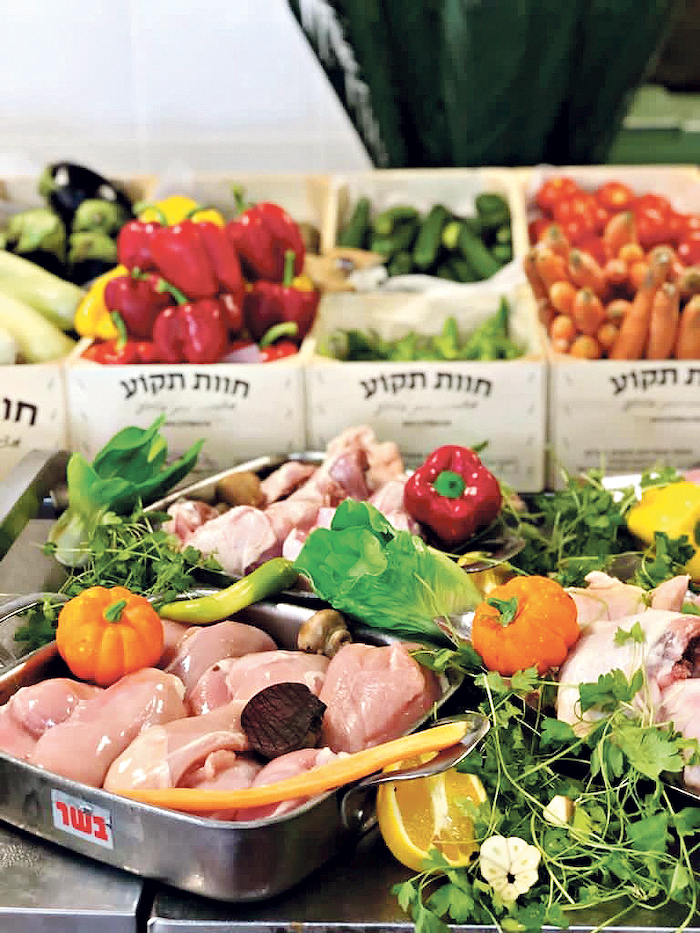
How has the IDF food offering changed over the years?
I have never had a problem with military food, but the demands of the youth 25 years ago were very different from the demands today. In ‘my day’ we ate to reach 70; today, the food served to the soldiers is significantly healthier and much better looking!
There’s more emphasis on food that is quick to eat and less processed.
The food stations are attractive and tailored to the needs and tastes of the soldiers.
In the past, there was almost nothing available for vegans, coeliacs, food allergy sufferers and the strictly-Orthodox; today, all dietary requirements are catered for.
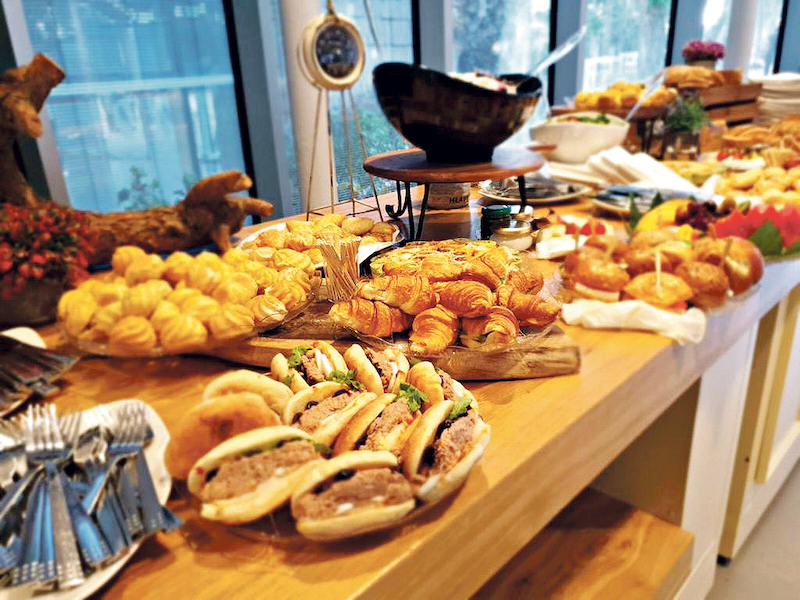
How have you enabled change?
Many of the changes were created as a result of the change in Israeli eating habits, because we are interested in making sure the soldiers enjoy their meals. I always tell the kitchen staff that every day they have a ‘date’ with the diners, and they should look attractive so the diners will want to come to the next ‘date’ (meal).
What nutritional expertise is there within the army?
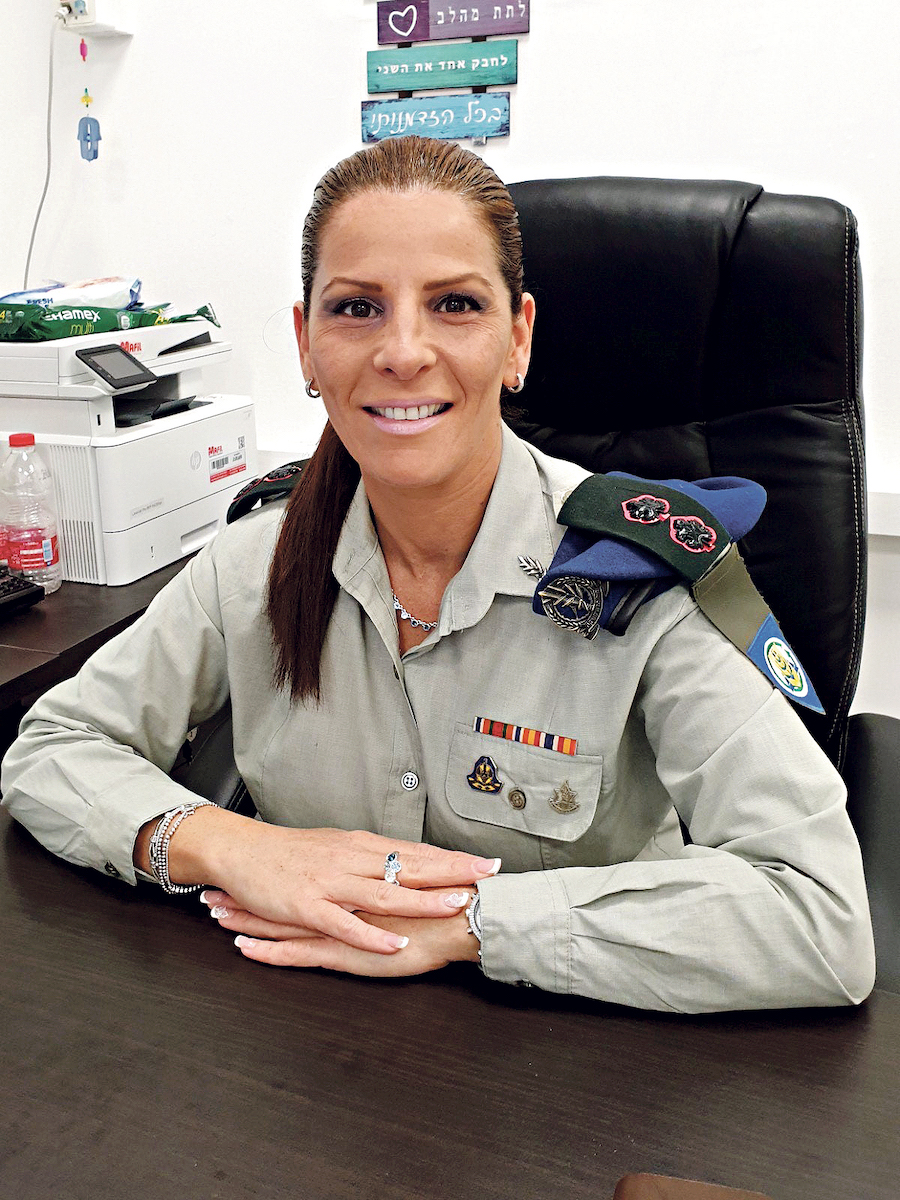
We work in collaboration with the chief nutritionist, who guides us as to the health and nutritional value of what we are producing, and with combat fitness instructors to encourage a sensible diet.
Each type of unit has a different style of menu, adapted to the activities of the soldiers within it.
How much does the outside world influence what soldiers eat?
The rich diversity of food in Israel and the wide variety of restaurants here directly influence the soldiers’ tastes and, in turn, what we feed them. The culinary world in general has changed hugely in recent years. There is a deluge of cooking on TV and all across social media – endless recipes and pictures of innovative and varied food. This has had an enormous impact on what the soldiers want to eat.
What’s on the menu?
The day starts with a variety of cheeses, vegetables, spreads (tahini, jam, chocolate, sesame), hot drinks, bread, dairy delicacies, soya delicacies, eggs and hot drinks. Lunch consists of a hot soup in the winter, between six and eight salads, two types of carbohydrates, cooked vegetables, a meat dish, a vegan dish, bread, fruit and a cold drink. Dinner is light – cheeses, vegetables, a variety of spreads, cold drinks and bread. A couple of times a week there are chef stands serving hamburgers, shawarma and more.
All kitchens in the army are kosher.
What happens on Shabbat and festivals?
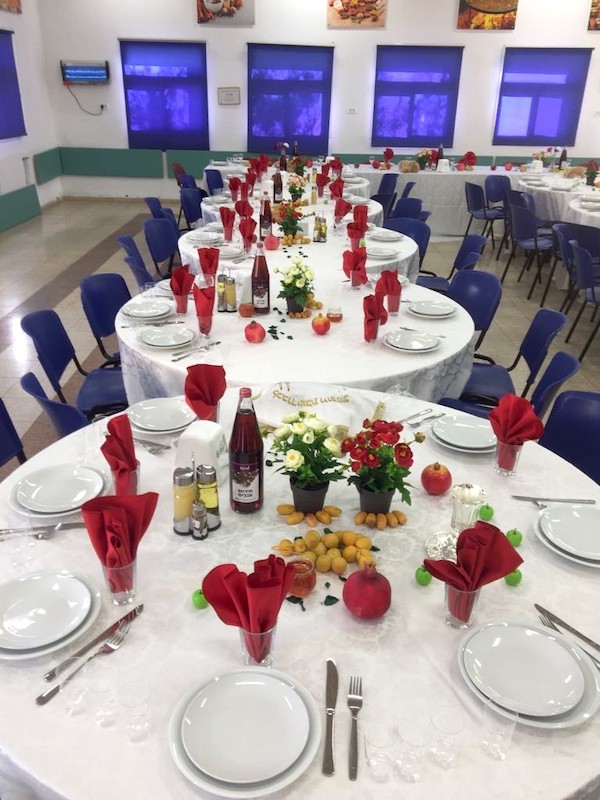
These meals are richer, more varied and more beautifully served – often with table service.
How has Covid-19 affected food operations in the IDF?
In some units, soldiers eat in limited numbers at specific times. If there are too many to be fed safely in this way, then the food is served in other locations.
How do you feel about hanging up your apron?
Every day I fall in love with the job all over again and want to do so many more things, but it’s time for a younger team to move in.
It’s with great pride that I am handing over the most amazing and delicious job there is in the IDF.
What do the soldiers say?
“Sometimes the options are very basic and repetitive and sometimes not – it all depends on the base in terms of supply and the cooks’ willingness to make an effort! The restriction of only one piece of meat or chicken per person can be annoying but they are really considerate of allergies and preferences such as vegetarianism. On some occasions, if we are not on active training, we can cook for ourselves and we enjoy making barbecues.” Lior
“Friday night dinners are great with a lot of ruach, good spirits and singing. My most memorable army meal was during chanukah 2019 where I was in a base in the Galilee where they made a huge, fancy dinner with hamburgers, tortillas, schnitzel in a roll, falafels, popcorn, waffles and donuts.” Omri
“The food contains everything that soldiers need to be in good shape. Breakfast and dinner are pretty much the same every time, but they try to make lunches interesting. When we are on a field mission we usually eat ‘war meals’ which comprise canned tuna, corn, beans and so on. Since the pandemic, the dining rooms at the bases have been closed, and the soldiers have to eat outside or in an improvised dining area. It’s been difficult logistically.” Sofia

Thank you for helping to make Jewish News the leading source of news and opinion for the UK Jewish community. Today we're asking for your invaluable help to continue putting our community first in everything we do.
For as little as £5 a month you can help sustain the vital work we do in celebrating and standing up for Jewish life in Britain.
Jewish News holds our community together and keeps us connected. Like a synagogue, it’s where people turn to feel part of something bigger. It also proudly shows the rest of Britain the vibrancy and rich culture of modern Jewish life.
You can make a quick and easy one-off or monthly contribution of £5, £10, £20 or any other sum you’re comfortable with.
100% of your donation will help us continue celebrating our community, in all its dynamic diversity...
Engaging
Being a community platform means so much more than producing a newspaper and website. One of our proudest roles is media partnering with our invaluable charities to amplify the outstanding work they do to help us all.
Celebrating
There’s no shortage of oys in the world but Jewish News takes every opportunity to celebrate the joys too, through projects like Night of Heroes, 40 Under 40 and other compelling countdowns that make the community kvell with pride.
Pioneering
In the first collaboration between media outlets from different faiths, Jewish News worked with British Muslim TV and Church Times to produce a list of young activists leading the way on interfaith understanding.
Campaigning
Royal Mail issued a stamp honouring Holocaust hero Sir Nicholas Winton after a Jewish News campaign attracted more than 100,000 backers. Jewish Newsalso produces special editions of the paper highlighting pressing issues including mental health and Holocaust remembrance.
Easy access
In an age when news is readily accessible, Jewish News provides high-quality content free online and offline, removing any financial barriers to connecting people.
Voice of our community to wider society
The Jewish News team regularly appears on TV, radio and on the pages of the national press to comment on stories about the Jewish community. Easy access to the paper on the streets of London also means Jewish News provides an invaluable window into the community for the country at large.
We hope you agree all this is worth preserving.
-
By Laurent Vaughan - Senior Associate (Bishop & Sewell Solicitors)
-
By Laurent Vaughan - Senior Associate (Bishop & Sewell Solicitors)
-
By Laurent Vaughan - Senior Associate (Bishop & Sewell Solicitors)
-
By Laurent Vaughan - Senior Associate (Bishop & Sewell Solicitors)


